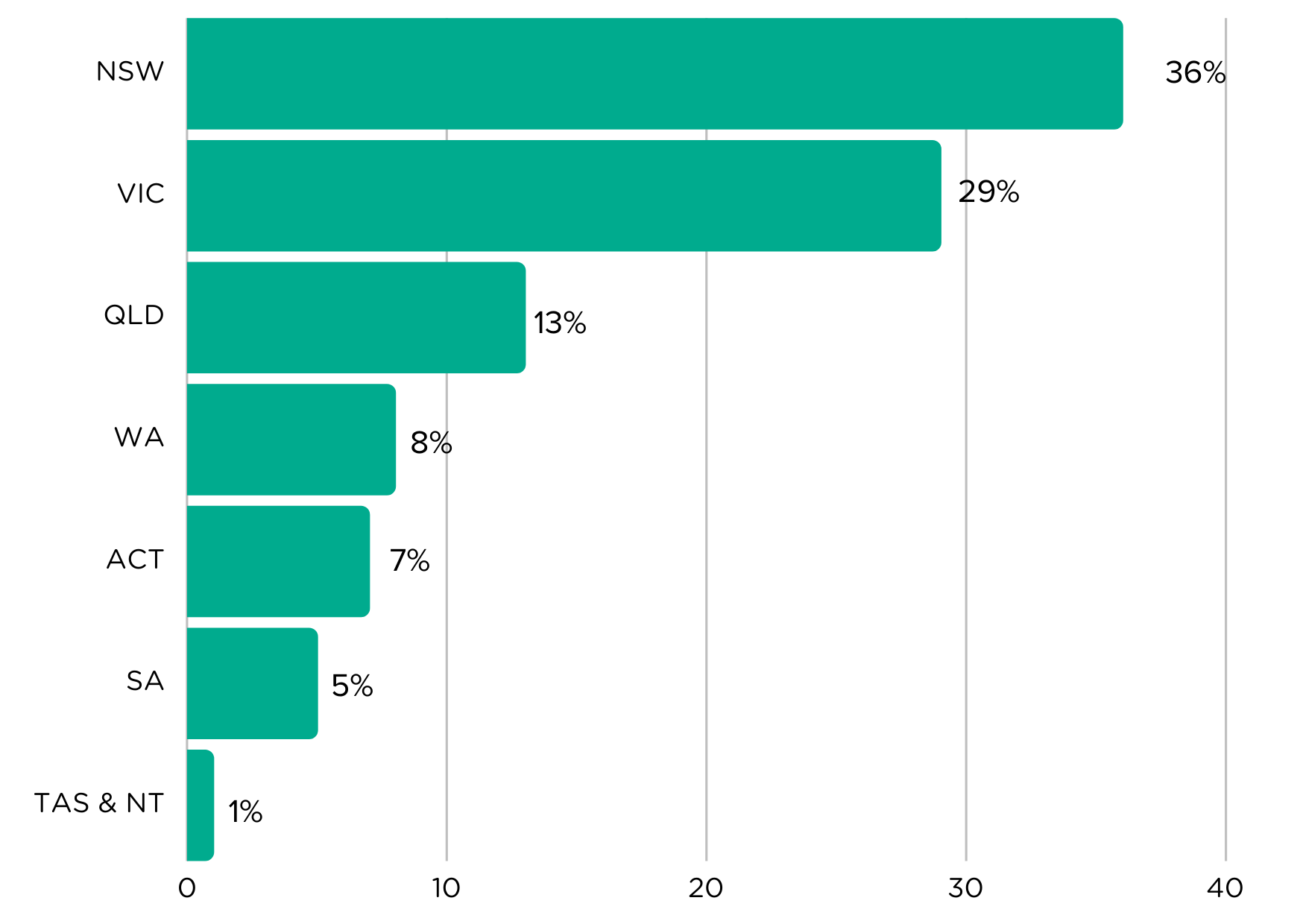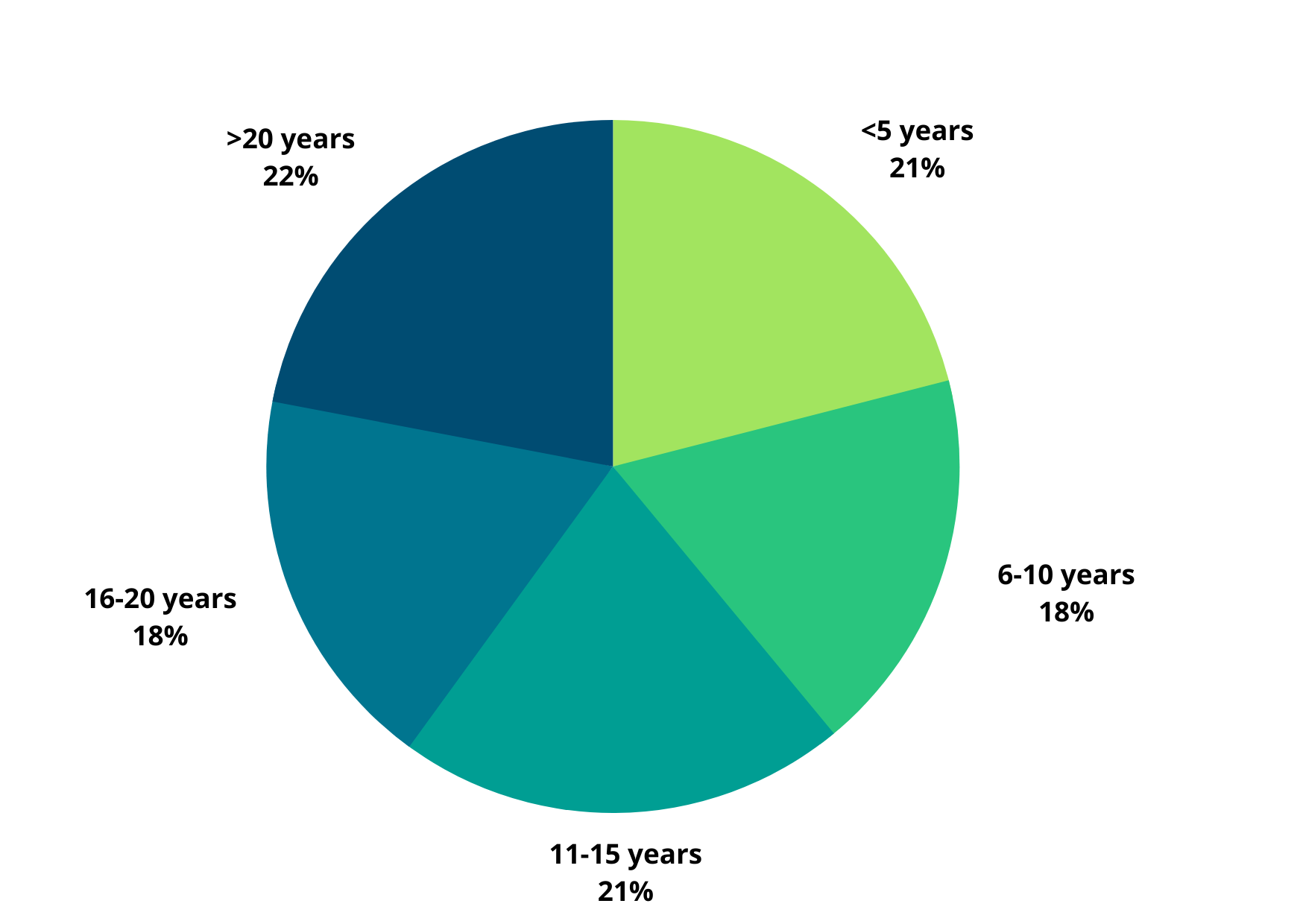
The cyber sector looks set to take out the title of sector to experience the most significant growth over the next decade. With the announcement of Project REDSPICE comes a $9.9 billion investment to bolster the Commonwealth’s offensive cyber capabilities and its detection and response network.
The cyber talent pool will need to grow significantly over the coming years to respond to this growth strategy. It is crucial to understand what the candidate market looks like now so that jobseekers make the best-informed career decisions, and hiring managers make smart hiring decisions.
We dissect the cyber workforce using LinkedIn data to understand the status of the talent pool.
What does the data say?
There are approximately 19,800 people who identify as currently working in a cyber role on LinkedIn in Australia. The below graph dissects the workforce by state.
.png)
As we can see from the graph, the cyber talent pool is largely based in NSW and VIC with 65% of the population in these states.
The ACT, which traditionally houses the majority of ICT workers, holds just 1,300 workers, 7% of the population. Just 19% of the cyber workforce are women in ACT, compared to 23% in VIC and NSW, and 22% nationally.
Demand for cyber skill sets is high across NSW, VIC, ACT and QLD but only moderate in WA and SA.
The proportion of cyber professionals who work in the defence industry is just 2%.This is in comparison to 34% who work in the Information Technology & Services industry.
Other industries employing cyber workers include Computer & Network Security, Financial Services and Government Administration industries. It is possible that some workers who work in the defence industry may have chosen to identify on LinkedIn as working in one of the other industries listed.
In the past 12 months, the Defence industry has hired workers out of the Information Technology & Services, Management Consulting, Government Administration and Higher Education industries. Within Defence industry, the most common universities cyber workers graduate from are UNSW, University of South Australia, RMIT, University of Canberra and Deakin.
In Defence industry specifically, the top employers are the Australian Department of Defence, BAE Systems Australia and Lockheed Martin. Most cyber workers in defence industry are either working as a Cyber Security Specialist, Information Technology Specialist or Cyber Security Analyst.
Across all industries, over 60% of all cyber workers in Australia have over 10 years of experience, as shown in the graph below. Anecdotally, we know that much of the cyber workforce is newly graduated, or has recently moved into cyber security from an alternative career.

What does this mean for defence industry?
Kinexus' experience in the industry has shown that there is significant interest in cyber projects; many workers are seeking to upskill in this area with the eye to carving out a future career.
As universities across Australia produce more cyber talent, it is important for Defence organisations to find roles for those with appropriate qualifications even if they do not have extensive experience.
As organisations across every sector and industry embrace cyber security as part of BAU, defence industry will need to showcase the range of projects available to cyber workers, who will look for interesting work as well as fair remuneration when deciding on their career paths.
About Kinexus
Kinexus supports defence industry nationally, both through permanent and contract recruitment, and through providing workforce insights, market mapping and other HR services. For more information or to enquire into our workforce mapping service, contact us.





